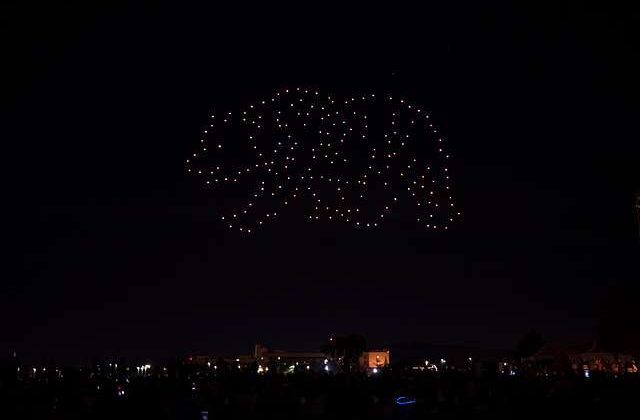FAA Investigating: Was a Jamming Attack Responsible?
According to an article in the Seattle Times, what was supposed to be a spectacular Fourth of July drone light show at Angle Lake in SeaTac turned into a costly disaster. Shortly after the show began, 55 of the 200 drones deployed started dropping into the lake, resulting in a loss of approximately $143,000 in equipment. While the incident was unfortunate, it should be noted that even when an unpredictable event caused the drone show to fail, there were no injuries – the small drones fell harmlessly into the water.
The city of SeaTac had invested $40,000 in the drone show, which aimed to offer a novel experience over traditional fireworks. The drones, valued at $2,600 each, were part of an intricate display coordinated by the Great Lakes Drone Company, a Michigan-based firm that conducts 150 to 200 drone light shows annually across the country.
Matthew Quinn, founder and CEO of the company, told the Seattle Times: “There was nothing wrong with the drones, nothing wrong with the software. So, it’s pointing to outside interference of some type. We don’t know what it is or what it could be.” Quinn mentioned possible causes such as off-frequency cell towers or unauthorized use of drone jamming devices, though these remain speculative. The company has never encountered a similar issue in any of its previous shows.
Jamming devices are generally prohibited by federal law, permitted only under certain exceptions for federal law enforcement. Despite these regulations, NBC News reported in March that several companies are marketing jammers online, raising concerns about their availability and potential misuse.
The sudden loss of GPS signals affected select drones, causing them to lose their orientation and making it safer for them to descend into the lake rather than risk erratic flight paths to return home. The incident is currently under investigation by the Federal Aviation Administration (FAA) and other relevant agencies.
This mishap marked the first drone light show at Angle Lake, which had previously hosted fireworks. The city had shifted to drones due to legal complexities stemming from a 1932 state Supreme Court ruling on navigable waters, leading to the cancellation of hydroplane races and city-sponsored fireworks shows.
The investigation’s findings will likely influence how future events are planned and executed to prevent similar occurrences. If it proves that this drone show fail was the result of sabotage, it’s no joke: the perpetrator could face serious consequences.
Read more:

